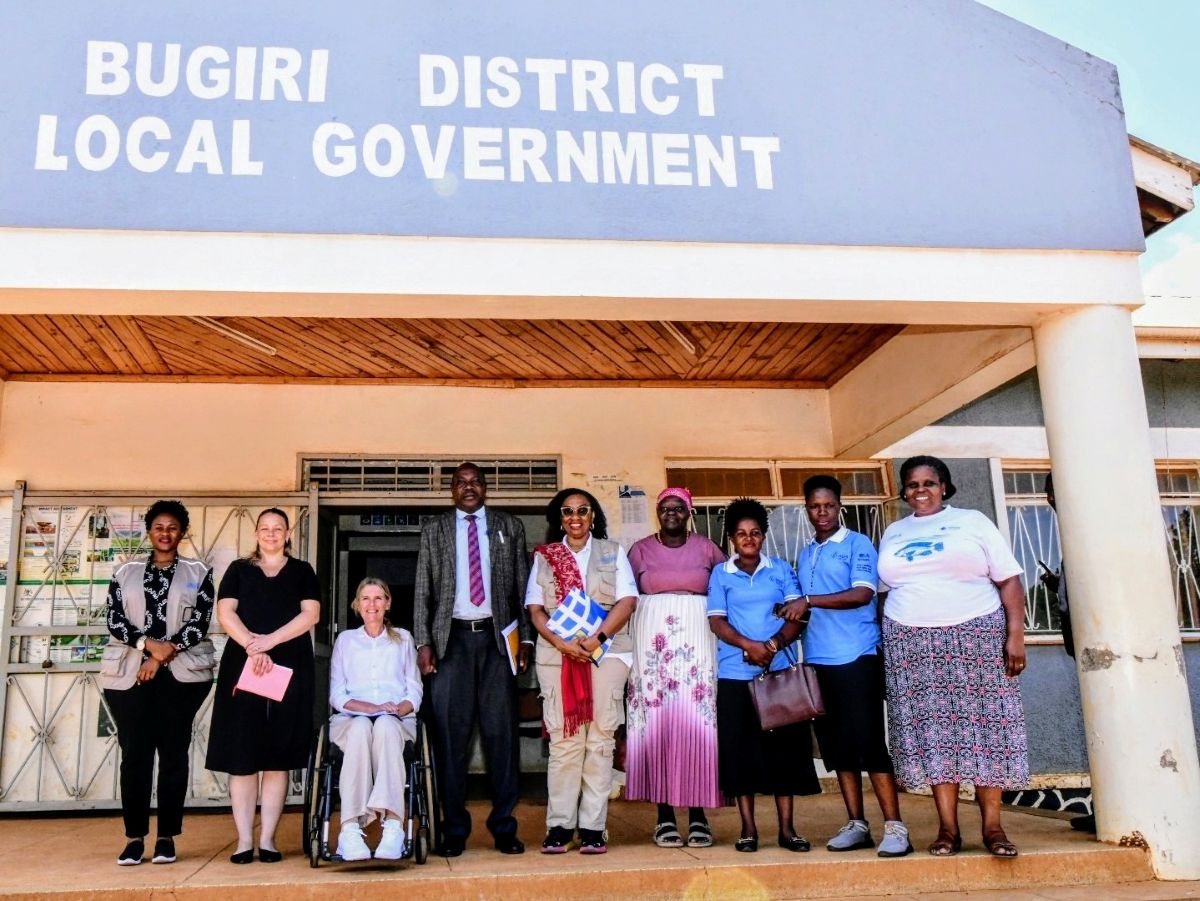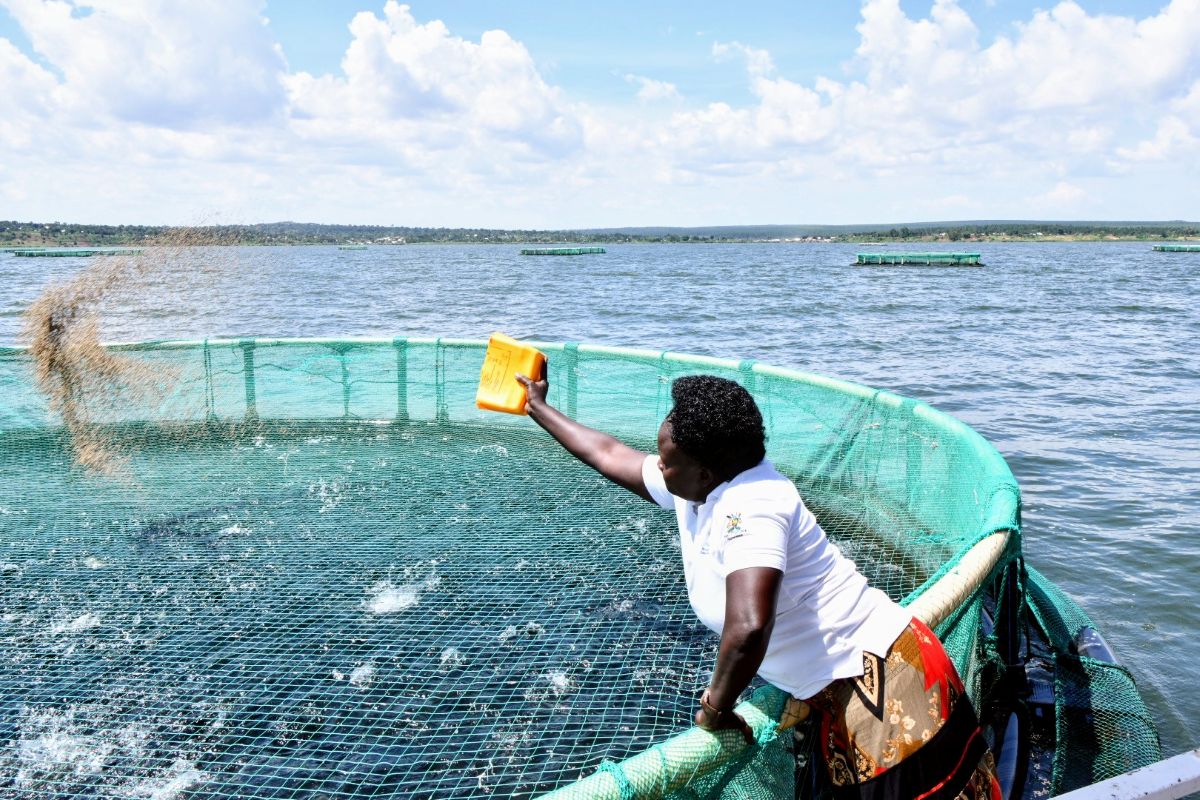Swedish Delegation Applauds Bugiri Women Fish Farmers for Advancing Gender Equality in the Blue Economy
Date:

Bugiri, Uganda | April 1, 2025 – A high-level Swedish delegation visited Bugiri District to engage with women fish farmers, recognizing their resilience and contribution to Uganda’s blue economy. The visit, organized in collaboration with UN Women Uganda, highlighted the critical role of women in fisheries and underscored Sweden’s commitment to gender equality and sustainable livelihoods.
The delegation, led by Ulrika Brobäck, the First Secretary, Democracy and Human Rights and the focal point for Gender at the Embassy of Sweden in Uganda, was warmly received at the Bugiri District Headquarters by the deputy chief administrative officer, Mr.
Later, the delegation headed to the fish cage farming venue at Wakawaka landsite where they were received by local women fish farmers, community leaders, and government representatives. The visit provided an opportunity for the delegation to witness firsthand the transformative impact of empowering women in the fisheries sector through skills development, access to markets, and financial inclusion.
During the visit, the delegation interacted with women involved in fish farming, processing, and value addition, gaining insights into the challenges and opportunities within the sector. The women shared their experiences on how support from UN Women and development partners has improved their livelihoods, strengthened their economic independence, and enhanced food security in the region.
“Before UN Women engaged us in this project, we relied on burning charcoal to survive, not realizing that we were also destroying the very environment we live in. However, since gaining skills from this project, I have been able to provide for my family without entirely depending on my husband. I have also witnessed a reduction in cases of gender-based violence compared to before the project,” said Betty.
Empowering Women in Fisheries Bugiri District, located along the shores of Lake Victoria, is home to a growing number of women engaged in fish farming. However, they continue to face challenges such as limited access to capital, inadequate infrastructure, and gender biases in the industry. Through various initiatives, UN Women has been supporting women fish farmers by providing technical training, access to equipment, and financial literacy programs to enhance their participation in the blue economy.
Speaking at the event, Broback commended the women for their dedication and resilience. “Women’s participation in the fisheries sector is crucial for Uganda’s sustainable development. We are inspired by the incredible work being done here in Bugiri and reaffirm Sweden’s commitment to supporting gender equality and economic empowerment,” said the First Secretary.
Strengthening Partnerships for Sustainable Development The visit reinforced the importance of multi-stakeholder partnerships in advancing gender equality in Uganda’s fisheries sector. Representatives from local government, civil society organizations, and development partners engaged in discussions on how to further scale up support for women fish farmers.

The women of Bugiri expressed gratitude for the continued support and called for more investment in infrastructure, skills training, and policies that promote gender inclusivity in the fisheries sector.
The visit by the Swedish delegation marks a significant step in ongoing efforts to promote women’s economic empowerment in Uganda. As the country works towards achieving the Sustainable Development Goals (SDGs), particularly SDG 5 on gender equality and SDG 14 on life below water, continued investment in women’s participation in the blue economy remains vital.
UN Women Uganda, alongside its partners, remains committed to scaling up support for women fish farmers, ensuring that they not only thrive in the industry but also contribute meaningfully to Uganda’s economic growth and food security.